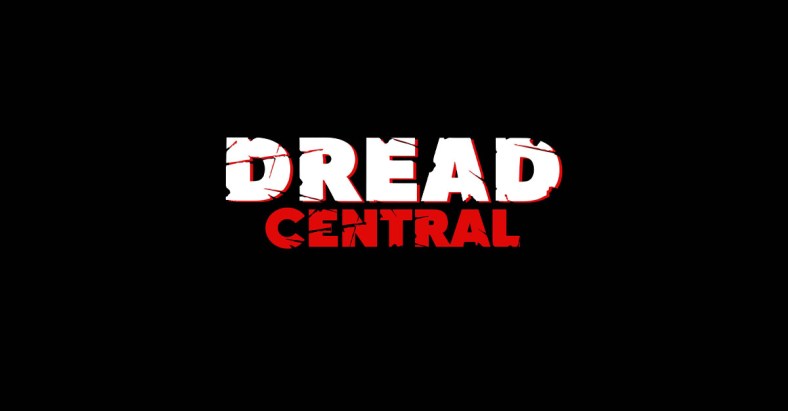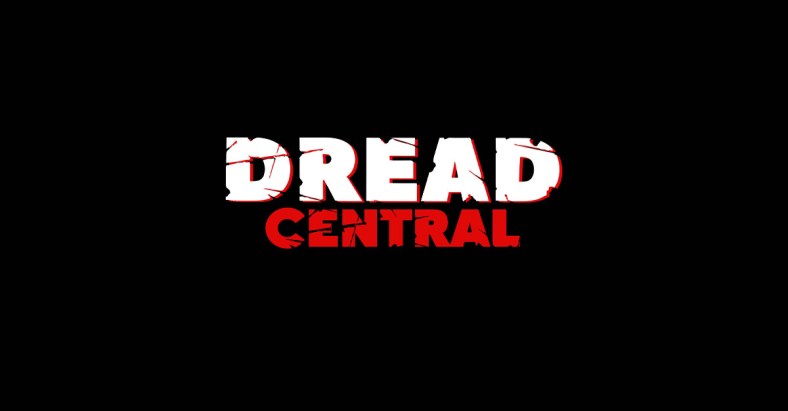XX – Jovanka Vuckovic Exclusive Interview

Filmmakers Jovanka Vuckovic, Annie Clark, Roxanne Benjamin and Karyn Kusama present four horrific tales of terror in XX – one of the few horror anthologies focusing on female filmmakers and characters.
Vuckovic’s first short film “The Captured Bird” (winner of four Best Short Film Awards) was executive produced by Guillermo del Toro and was an official selection at over 50 festivals around the globe. Her XX entry is called “The Box” and it’s based on a Stoker Award-winning short story by Jack Ketchum. We caught up with her to ask a few questions about “The Box” as well as how XX fits into the pantheon of horror anthologies.
Dread Central: “The Box” had sort of a “Twilight Zone” feel to it… with a lot of gore! Was having that sort of feel to it something you intended or did it happen organically? Also, what sort of mandates did you have to make it female-centric?
Jovanka Vuckovic: I thought of it as a “Twilight Zone” story and I even toyed with shooting it in black and white at one point because I was so inspired, but then I thought that would be wearing my influences too much. Also, because it is in an anthology, we wanted it to be very serious, and so I thought making it black and white would take away from it. Jack Ketchum’s story, I don’t know if you’ve read it, but basically the only thing I changed was the gender of the protagonist. I changed it from the father, who was incapable of making a meaningful connection with his family, to the mother, and when he wrote his story in the early Nineties, it was a different time then. Now there’s more women going to work and more stay-at-home dads, so it made sense to me.
Todd [Brown] and I had three rules when we created XX, and it was that it had to be written by a woman, directed by a woman, and had to star a woman in a lead role. So I was, ‘Yeah, okay, so I have to make the lead character a woman,’ and then when I did that, all these new story possibilities emerged. Although the sentiment is the same as Jack Ketchum’s story, it becomes more about ambivalent motherhood and all of the supposed negative feelings around motherhood that we don’t talk about much: resentment, the drudgery of daily routine.

There was a woman in my personal life basically who told me that she married the guy that she was supposed to marry, that everyone thought she should marry, then she had a kid with him, then she had another one because society was telling her that one kid was going to be lonely and she had to have another one, and so on. She did all these things and then once she got to forty she realized she really didn’t like any of them. That really stayed with me. She did all the things she thought she was supposed to – and women tend to fall into that trap more than men – the trap that doing everything everyone, like your family, society, suggests you should do at this point in your life. We see it when women hit thirty; everyone starts asking them, ‘Why haven’t you had kids yet?’ People don’t ask men that shit, so that stuff is a lot more interesting to me than telling another story about a father who works too much and can’t connect with his family. Then I added in the cannibal scene, so that scene where they’re eating Mom on the table there is something I added in because the story is so specific about the food and the dinners and the eating. They were carving the mother like she was a turkey.
DC: What I really liked was your color palette – muted, but with pops of red… like the box itself. And there’s a lot of attention to detail in general.
JV: Yeah, I’m glad that you noticed that. It’s so subtle people don’t often point out the production design and the color palette and stuff that I chose because it’s so muted. I worked with Ian Anderson before and I made another short film with him [“The Guest”] and I’d given him this look book I created… he made that short film look exactly like the book. So when we were shooting “The Box,” I gave him another look book and I said, ‘This is what I want it to look like.’ For the subway scene, I wanted everyone to be dressed in gray, dark colors that were sort of drab, so that the box pops in that scene. And the house, all the dinner scenes and everything, I wanted the food to really stand out; I wanted it to look like food porn so I hired a food stylist to make the food look amazing.
Well, it devolved from healthy to crap over the course of the film, but I wanted everything else to be very neat and tidy, sort of de-saturated and for Susan’s clothing to be perfect, always very perfect because she plays the role of the mother who’s actually just trying to keep up appearances and failing, failing at motherhood. I had a very distinct look book and I had some images from the movie The Master, which I used as a reference, that I gave to my DP. I chose very particular shots. I wanted it to be very constraining, so everything is either on tripod or locked off or a slow-moving dolly. I didn’t want movement; I wanted it to be very controlled. I was always boxing Susan in, I’d box her in a window or a doorway, I’d try and box her in as much as possible to sort of give the idea that Susan is very confined.
DC: Female directors and filmmakers seem “trendy” right now… I’m seeing more inclusion in recent years… but do you think it’s going to help turn the tide, or is it just the flavor of the week?
JV: We created XX in direct response to lack of opportunities for women directors, so there’s a problem, a systemic problem, not just in horror. It’s the film business. Just seven percent of all working directors, according the DGA’s diversity report, are women; and that is a major problem. It’s not because women are not interested in film; in fact, more than fifty percent of all film school graduates are women. I was just reading Ted Koch’s memoir on filmmaking, and he brought up these numbers as well and how abysmal it is for women directors. There’s a lot of reasons why this problem exists, and the DGA knows it exists. They want to have more diversity and they want people to hire more women, but they can’t force the studios and networks to hire women. The only thing that’s going to change it is if women start hiring other women, and XX was something functional that we could do to address this problem. Some of it has to do with sexism… actually, I think a lot of has to do with sexism because the former president of the DGA said that basically the reason that people aren’t hiring women is because a lot of people don’t want to take orders from women. So it’s a real serious problem.
The ACLU last year launched an investigation into the hiring practices in Hollywood, but despite all this noise that we’re making, and some progress like you pointed out, some more women directors making horror films, we’ve actually taken a backslide. The numbers went from eight percent to seven percent from last year to this year. Yeah, it’s a real problem and we have to just keep going. Women have to help each other, we have to hire each other in order to make a dent in this seven percent problem. When I shot “The Box” I crewed up with as many women as I could. I had, like, eighty percent women on the crew. That’s how we can make things better. So with my feature that I’m soft-prepping right now, it’s a sci-fi/action movie with kids, I’m trying to hire as many women as I can. Not just in key roles like heads of departments, but right down to the core of the crew – so that’s what I’m doing to sort of encourage progress. The fact is that women directors don’t get the same projects as men; they generally get much smaller budgets because there’s a belief that we’re not capable [of handling] these huge tentpole movies. This is one reason why I urge everyone, whether you like superhero movies or not, go see Wonder Woman because we need to be able to say, ‘Women can do this!’ For instance, Get Out is the proof now, [so] we can finally say to financiers and producers that it’s not true that horror movies with a black lead won’t sell. It’s not true. Also, Hidden Figures is an example of a movie about three black women isn’t going to sell, that’s no longer true. So go and buy a fucking ticket for Wonder Woman when it comes out!
Synopsis:
XX is a female-driven horror anthology with each director given full creative license to tell any story they choose revolving around a female protagonist. While the directors have been given free creative rein within budget and time constraints, all of the segments themselves involve the horror genre.
Categorized:News

